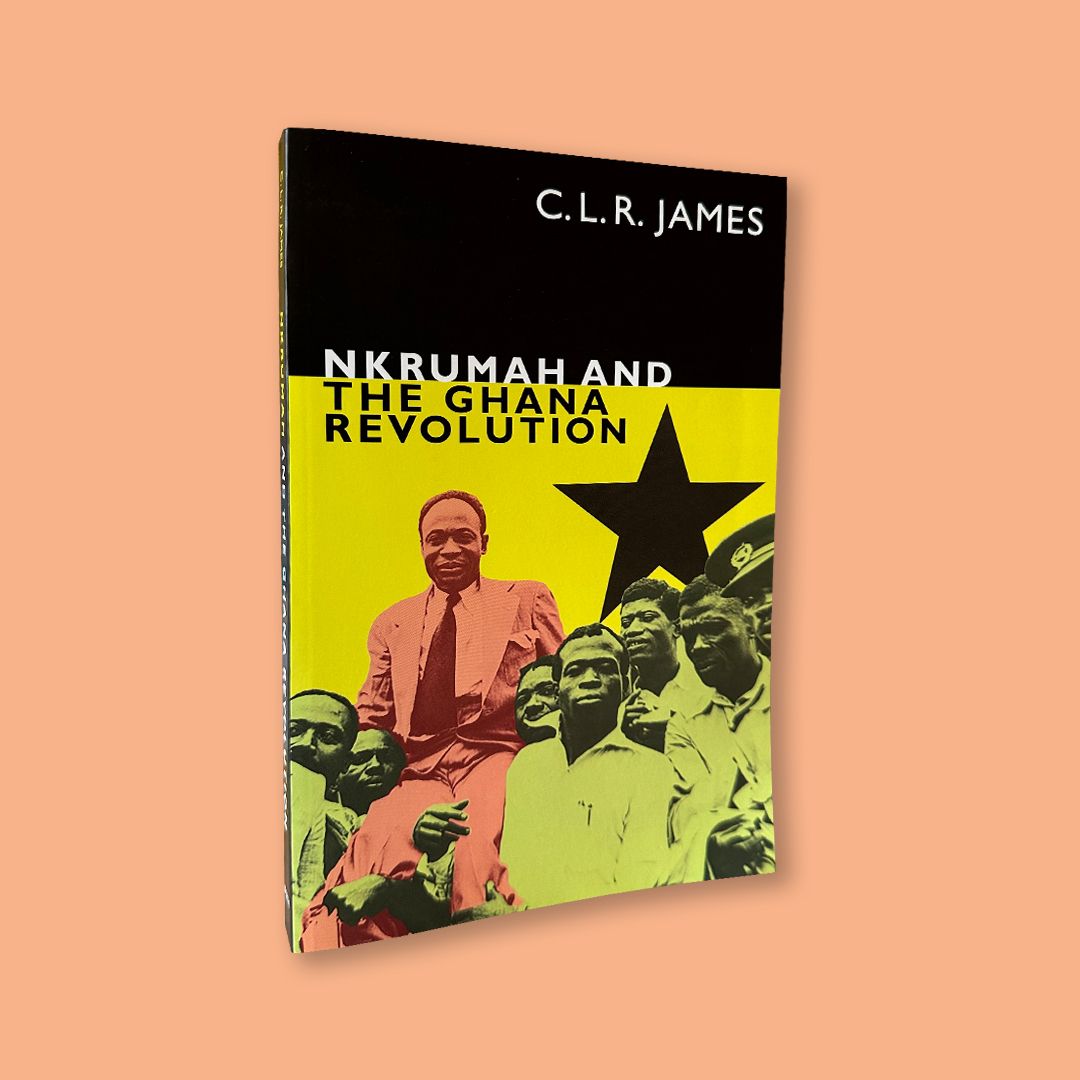“Mandela was not the only head of state taken in by Koagne. Le king kept snapshots of himself with many a man of power, among them Mobutu Sese Seko and Denis Sassou Nguesso […] He took Mobutu for 15 million dollars. Blaise Compaoré of Burkina Faso lost 40 million to him. Sassou, Etienne Eyadéma of Togo, several high officials of Gabon, Tanzania and Kenya, a member of the Spanish government and an ex-operative of the Israeli Mossad were bamboozled as well.” – Dominique Malaquais (Blood Money: A Douala Chronicle).
Bantu Serenade by Ntone Edjabe (featuring Nah-ee-lah) (read excerpt)
Santu Mofokeng: Trajectory of a street photographer (part1) (read excerpt)
Binyavanga Wainaina: Hell In Bed With Mrs Peprah (read excerpt)
Dominique Malaquais: Lindela (the winnie suite) (read excerpt)
Boubacar Boris Diop: Myriem (read excerpt)

Cover:
Neo Muyanga
Nkrumah and The Ghana Revolution by C.L.R. James (Duke University Press, 2022)
Nkrumah and The Ghana Revolution by C.L.R. James (Duke University Press, 2022)
In this new edition of Nkrumah and the Ghana Revolution, C. L. R. James tells the history of the socialist revolution led by Kwame Nkrumah, the first president and prime minister of Ghana. Although James wrote it in the immediate post-independence period around 1958, he did not publish it until nearly twenty years later, when he added a series of his own letters, speeches, and articles from the 1960s. Although Nkrumah led the revolution, James emphasizes that it was a popular mass movement fundamentally realized by the actions of everyday Ghanaians. Moreover, James shows that Ghana’s independence movement was an exceptional moment in global revolutionary history: it moved revolutionary activity to the African continent and employed new tactics not seen in previous revolutions. Featuring a new introduction by Leslie James, an unpublished draft of C. L. R. James's introduction to the 1977 edition, and correspondence, this definitive edition of Nkrumah and the Ghana Revolution offers a revised understanding of Africa’s shaping of freedom movements and insight into the possibilities for decolonial futures.

